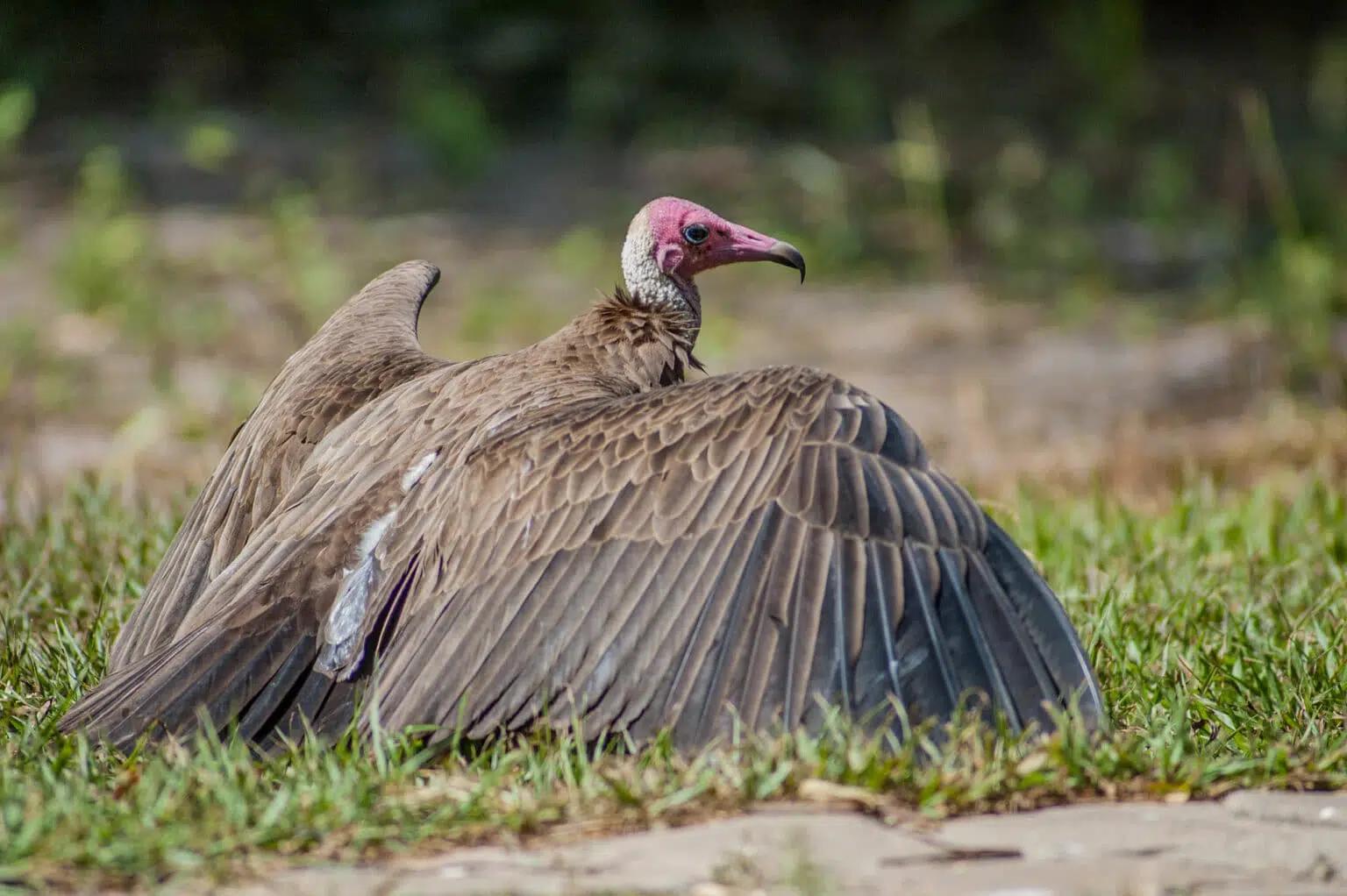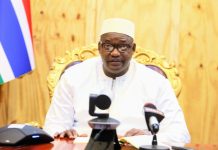Africa-Press – Gambia. Across Africa, vulture populations have catastrophically declined over the last 50 years, with overall decline rates of up to 97%. Today, 7 out of 11 African-Eurasian vulture species are at risk of extinction, underlining this decline. Leading causes of vulture mortalities on the continent include poisoning, belief-based use and collision with energy infrastructure among other factors. In West Africa, belief-based use is considered the leading cause of vulture deaths, where vultures are killed for their parts which are used in traditional medicine or charms. In 2020, more than 2000 Critically Endangered Hooded Vultures Necrosyrtes monachus died in Guinea Bissau, with the deaths linked to belief-based use, while in Gambia, more than 50 Hooded vultures were poisoned in the same period. Currently, the Hooded vulture is classified as Critically Endangered on the IUCN Red List, further underlining the significance of this threat.
In 2021, a vulture conservation project was launched in Guinea Bissau, the Gambia and Senegal to address threats to vultures in the region. The project supported by IUCN Save Our Species , and co-funded by the European Union is being implemented by Organização para a Defesa e Desenvolvimento das Zonas Húmidas (ODZH) in Guinea Bissau, WABSA, West African Bird Study Association in the Gambia, and Nature-Communautes-Developpement (BirdLife Partner) in Senegal. Several activities have been undertaken in all countries over the course of the first half of this year-long project attempting to understand the drivers and motivations behind the use of vulture parts. In Senegal and Gambia in particular, there has been a concerted focus on vulture monitoring surveys and sensitization campaigns.
Capacity building is a crucial aspect of this project. To this end, ODZH is carrying out capacity building training targeting law enforcement officers working at checkpoints and judges in three regions namely Bissau, Bafatá and Gabú, to address wildlife crime particularly poisoning of vultures in Guinea Bissau.
For More News And Analysis About Gambia Follow Africa-Press






